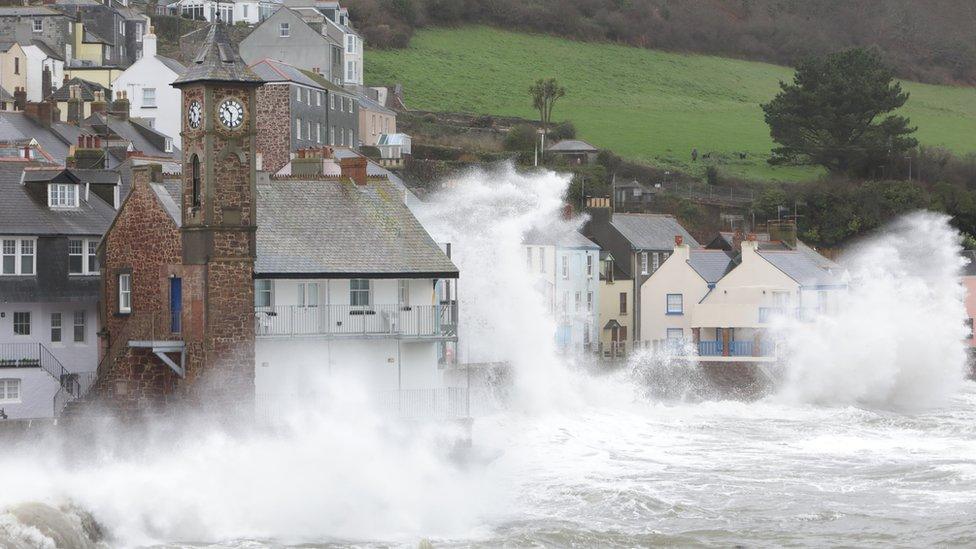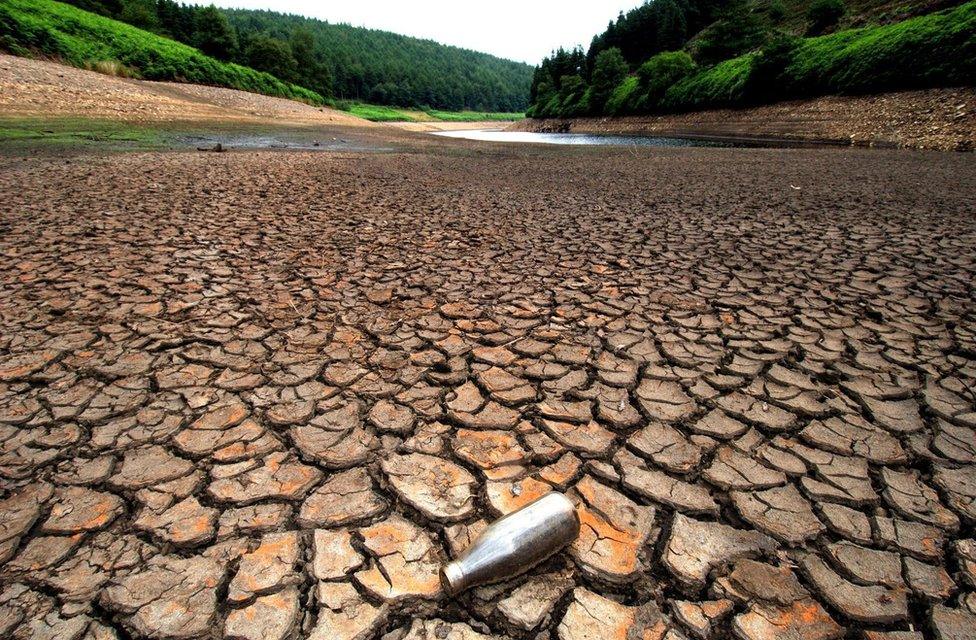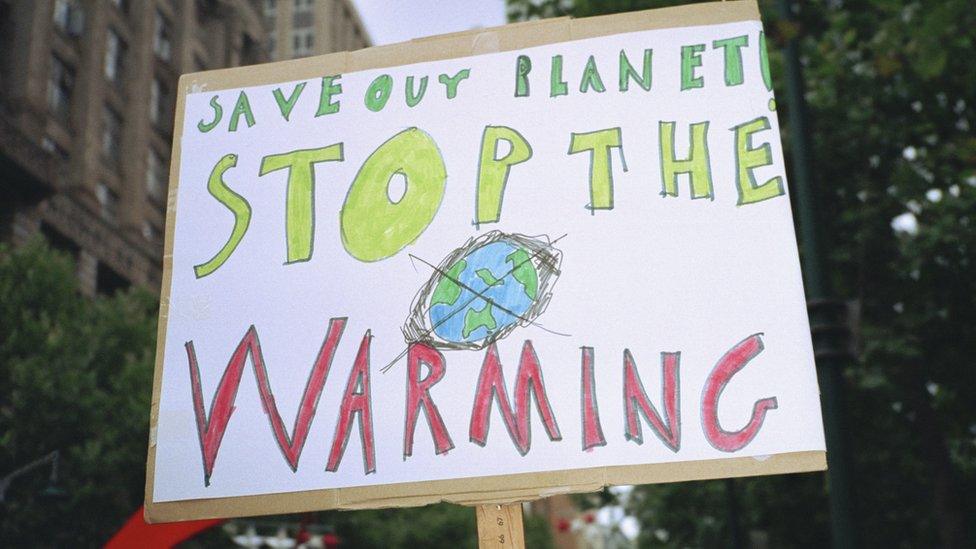Climate change: Climate Change Committee report says UK not prepared
- Published
- comments

Extreme weather and flooding could be more common in the next decades.
The UK need to go further and more quickly to get ready to deal with effects of climate change, according to a new report by government advisers.
It warns that the UK is not prepared to face climate problems like severe heatwaves, especially in big cities, and a greater risk of flooding, from more intense rainfall.
The report was made by the Climate Change Committee (CCC) - an independent group of experts who provide the government with independent advice on the climate crisis.
They said they are frustrated by the government's lack of action, and said the UK is even less prepared to deal with the effects of climate change than it was five years ago - when their last report came out.
"They think they can put adaptation off until tomorrow," said Baroness Brown the chairwoman of the CCC's sub-committee on adaptation. "But now's the time for urgent action."
What have they said in the report?

The Committee has shared eight areas that they think need urgent action in the next two years.
They include:
Risks to natural habitats and species in the UK
The health of soil - after increased flooding and droughts
Risks to crops, farm animals and timber.
Interruption to important supply networks - that we rely on for food and goods.
Risks of weather-related failures to electrical power grids - that we rely on for our power.
Health risks from higher temperatures and heatwaves.
The risks we face from climate change risks happening in other countries.
The CCC's chief executive, Chris Stark, said: "It's really troubling how little attention the government has paid to this... We are not thinking clearly about what lies ahead."
What are some of the big issues?

Shutters can help shade homes during intense hot weather
Overheating
While using better insulation helps houses keep warm and use energy efficiently, one of the biggest issues the CCC say needs dealing with is the risk of overheating in people's homes.
Here in the UK, heatwaves are becoming more common, and this can cause people's homes to become very hot inside. This increase in temperature could cause people to become ill, from things like heatstroke or dehydration.
Since the CCC's last report five years ago, more than half a million new homes have been built without features like shutters or better ventilation, to help cope with hotter temperatures.
The report is based on a huge review of lots of scientific research papers by 450 experts from 130 organisations.
Weather-related issues

This reservoir in the Peak District dried up.
The CCC spoke to a number of weather experts to learn how extreme weather changes could affect our lives.
Things like droughts, caused by rising-temperatures, can cause big problems for our soil and plants.
Farmers trying to grow our food, can lose whole fields of crops as the soil dries out, and the sun wilts them.
Peat-bogs - which are wet swampy areas that help to clean our air, by trapping carbon dioxide - can dry out in high temperatures, releasing the carbon they trapped back into the atmosphere.
As well as this, an increase in rainfall and storms will mean a lot more flooding for more areas in the UK.
These storms can also damage power stations that supply electricity to our homes.
How can we help tackle these issues?

Kathryn Brown was one of the author's of the report, and has suggested that planting trees can help stop homes from overheating
The CCC have suggested a number of solutions to help prevent, and protect against future issues that could arise from climate change, this is called "climate-proofing".
The experts behind the report have suggested that things like planting trees outside homes to shade them, and adding shutters to windows could help with overheating.
They have also said that the government must help to protect people living in flats, by improving ventilation and shading.
They recommend that people sign up to flooding alerts, and look at flood protection options, such as door guards.
The experts have also said that the government needs to help re-wet the peat bogs across the UK.
What have the government said?

A UK government spokesperson say they "welcomed" the report, and said that many of the issues raised were being addressed in government policies.
"The UK was the first major world economy to set a target of net zero greenhouse gas emissions by 2050. Our plan to further reduce emissions in 2035 by at least 78% compared to 1990 levels is the highest reduction target by a major economy to date." they said.
"We welcome this report and will consider its recommendations closely as we continue to demonstrate global leadership on climate change ahead of COP26 (the climate summit to be held in Glasgow) in November."
They also said that the government had been building measures to prevent flooding, and was looking at proposals to tackle overheating in new homes.
- Published9 April 2021

- Published19 May 2020

- Published18 April 2024

